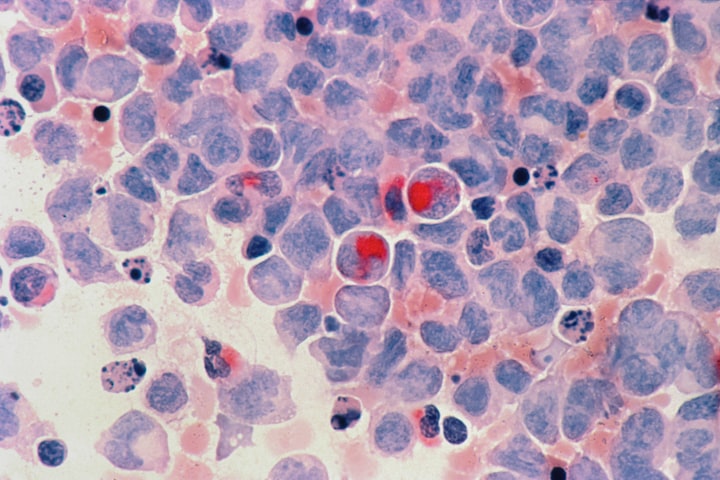Before you start the diet, here's what you should know!
This is for you...!

There’s a right and wrong way to do a ketogenic diet, but researchers are still looking into its impact on heart health.
The Vitamin Shoppe started the national day in 2019 to increase awareness about the low-carb, high-fat diet, which has been linked to weight loss and a reduction in epileptic seizures. While many dieters have had success with ketogenic eating programs, researchers are unsure about the long-term effects of keto.
EXPERTS SAY EATING PUMPKIN CAN HELP YOU LOOK YOUNGER AND LOSE WEIGHT.
Keto diets may help people lose weight and promote "modest" improvements in heart health, according to a study from National Jewish Health, a cardiac, respiratory, and immune hospital. However, researchers warned that this high-fat dieting method could encourage "consumption of foods that are known to increase cardiovascular risk." According to the study, keto diets may be unsuccessful in avoiding heart disease because dieters who are left to their own devices are more likely to consume dangerous saturated fats.
This becomes a problem when dieters follow the keto diet's nutritional breakdown of 75% healthy fats, 20% protein, and 5% carbohydrates, but instead eat items high in saturated fat, such as cured meats, cheese, and cream. When the diet is followed correctly, the body enters ketosis, which is a metabolic state in which the body burns stored fat for energy instead of carbohydrates (AKA glucose or blood sugar).
A small-scale study published in the American Journal of Clinical Nutrition found that obese participants between the ages of 18 and 65 lost weight and improved their cardiovascular health when they ate a low-carb, high-unsaturated-fat diet.
AMERICANS EAT A LOT OF UNHEALTHY FOOD – WITH THE EXCEPTION OF SCHOOL, STUDY FINDINGS.
"When it comes to research on keto and cardiovascular health, there doesn't seem to be a clear answer, and the answer is probably somewhere in the center," said Arka Hoscheit, a registered dietician in Nashville who started Food Courage, a healthy food website.
"Low to medium amounts of circulating ketone bodies, as found in nutritional ketosis, have been shown in certain studies to be helpful to the functioning of endothelial cells in our vascular system. Heart health advantages from protecting our vascular system "Fox News Digital spoke with Hoscheit. "Also, since obesity is a risk factor for heart disease, it stands to reason that a ketogenic diet could enhance heart health indirectly through weight loss and management."
HEALTH RISKS OF FROZEN HONEY YOU SHOULD KNOW BEFORE JUMPING ON THE TIKTOK FOOD TREND
A keto diet study published in the World Journal of Diabetes found beneficial changes in biomarkers like glucose, total cholesterol, triglycerides, and LDL cholesterol, according to Hoscheit (low-density lipoprotein AKA "bad cholesterol").
"However, some studies have revealed elevated LDL levels in those following a keto diet, so heart health remains a concern," Hoscheit noted, citing a research published in the Cureus Journal of Medical Science. "Some speculate that the higher LDL levels are caused, at least in part, by fast weight reduction, which causes cholesterol to be mobilized when fat cells shrink."
After a large-scale study from the American College of Cardiology found that participants on a low-carb, high-fat diet were 18 percent more likely to develop Atrial fibrillation (AKA AFib) – a heart rhythm disorder – than those who ate a "moderate" amount of carbs, cardiologists have called for more research on the effects of keto diets on heart health. It's unclear whether ketogenic diets were the reason, or if a lack of water or salt, among a variety of other factors, led to the findings.
"There are a variety of approaches to a ketogenic diet, some of which are healthier than others," Hoscheit told Fox. "There's a reason we hear about a 'clean' keto diet and a 'dirty' keto diet so frequently. While a ketogenic diet is generally heavy in fat, some people consume more fat than others, and the types of fat and food consumed differ greatly from one person to the next."
She went on to say, "High-quality grass-fed/pasture-raised meats, healthy fats, and veggies, among other things, would make up a 'clean' keto diet. A 'dirty' diet, on the other hand, might include processed meats, low-quality dairy products, processed oils, artificial sweeteners, processed convenience items, and so on. When it comes to our health, these subtleties are crucial. Because there is no one-size-fits-all keto diet, it's impossible to define specific health benefits or drawbacks. While being in ketosis has been proved to be helpful in a variety of situations, how we get into ketosis (i.e. dietary quality) still has an impact on our health."





Comments
There are no comments for this story
Be the first to respond and start the conversation.